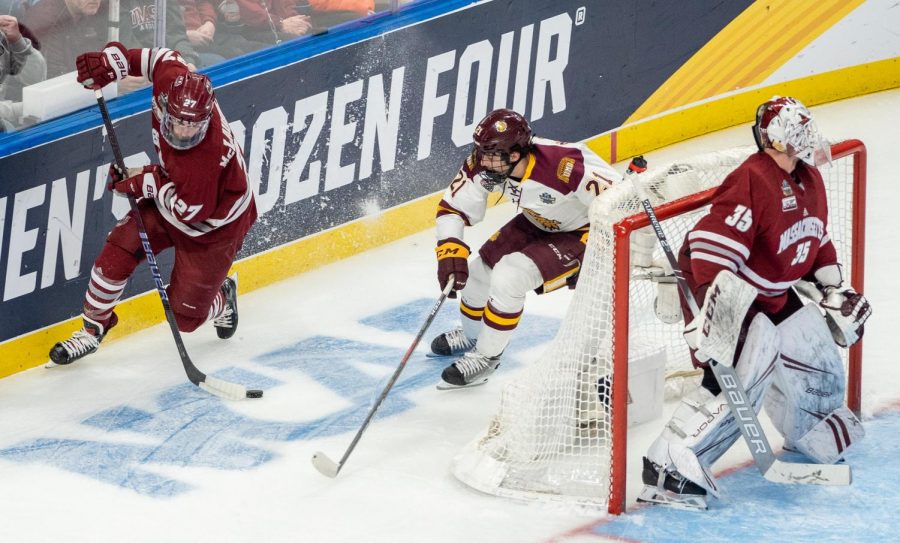The Mark H. McCormack School of Sport Management held a three-person panel at the University of Massachusetts on Wednesday to examine the issue of mental health in sports and the challenges student-athletes face.
The event, which was a part of the Association of Diversity in Sport talk series “Mental Health in Sports” featured Imani McGee-Stafford, a center for the WNBA Atlanta Dream; Roisin McGettigan-Dumas, a former track and field athlete who represented Ireland in the 2008 Olympics; and Jim Helling, a clinical social worker and athletic counselor at UMass. The event was moderated by Brett Albert, a lecturer at the Mark H. McCormack School of Sport Management at UMass.
To start the discussion, McGee-Stafford shared her struggles with mental health, recalling how she would use poetry as “an outlet” during her time playing basketball at the University of Texas. During one summer, she attended a poetry-slam tournament in Philadelphia, but because she had to miss a week of workouts, she agreed to take part in a documentary for her school media during her trip.
In the documentary, McGee-Stafford opened up about her experiences with mental health as well as sexual abuse, and the documentary ended up being featured on ESPN. The documentary ultimately lead to her wanting to become an activist for mental health.
“One of the things I learned in that was that so many people reached out to me saying they had similar stories as me, people I have known my entire life,” McGee-Stafford said. “It helped me realize that’s my life purpose.”
“At all points and at all times, I try to use my platform to talk about these things,” she added.
In response to McGee-Stafford’s story, Helling said that her story is emblematic of how athletes with mental health issues are forced to give up “control of their most personal, most intimate stories, which is commodified for the benefit of the university and the benefit of those who sell soap on television.”
McGettigan-Dumas also emphasized how mental illness can affect student-athletes who suffer injuries or can no longer compete. According to Dumas, sports can provide physical benefits as well as providing companionship and a positive space for students, and not being able to take part in sports is a “massive loss” for athletes.
“If you take [sports] away, if you get injured or if something crops up, and you take all of that away, that’s why it is so painful for an athlete to get injured, that’s why it can look like depression if someone can’t play and that’s why the mental health is at risk for athletes when they are taken out of that,” McGettigan-Dumas said.
In addition, Helling blamed the NCAA for the issues student-athletes face, explaining how the organization decided to label college players as student-athletes to “avoid having to treat them as employees, who would have to have their health and welfare taken care of for what they contribute.”
As a method to help reduce the effects of mental illness on student-athletes, McGettigan-Dumas cited journaling, claiming it allows student-athletes to “take ownership of their journey.”
“By tracking the effort you do and the training you are putting in, you start to see the growth, you start to see the patterns in your training, you start to see what works and what doesn’t work,” said McGettigan-Dumas.
“It really helps athletes take their experience from a race or a competition and move it from the experiential part of the brain into more of the forefront of their brain where they can learn from it and make concrete steps forward,” she added.
For many student-athletes, according to McGettigan-Dumas, they can only focus on their role as an athlete, but she argues that student-athletes should focus on other roles, such as being a student or being a friend or family member.
“I do think it is limited to think ‘I’m only an athlete,’” she said. “You are so much more than that. Everybody always is more than their roles.”
Will Mallas can be reached at [email protected] and followed on Twitter @willmallas.




















